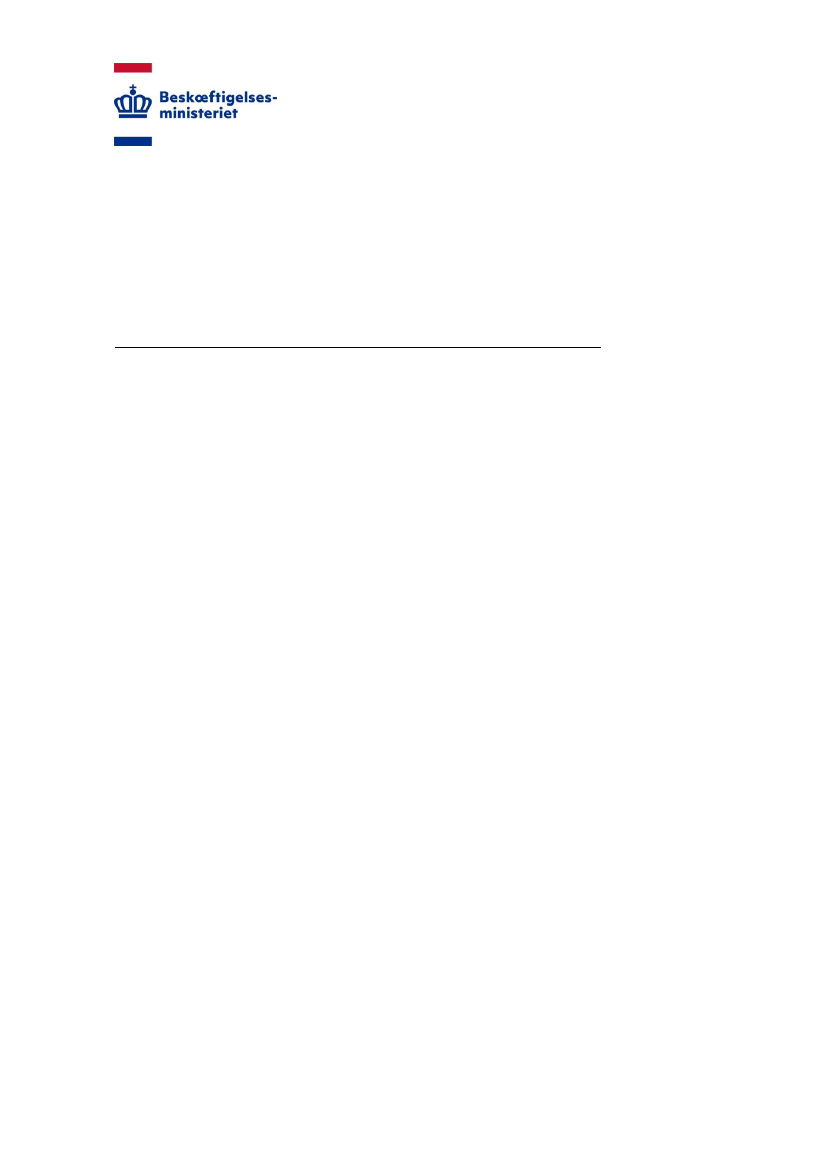
MEMORANDUM
The Danish Government’s views on the forth-
coming action plan to implement the Euro-
pean Pillar of Social Rights
30. November 2020
File no. 2020 - 4539
CADI
Overall remarks
The European Union is a global role model for the social market economy, com-
bining high employment, a high degree of social equality and sustainable growth,
in accordance with Articles 9 and 151-161 of the TFEU, and the European Social
Charter.
Since the European Pillar of Social Rights (hereinafter referred to as
“the
EPSR”)
was proclaimed at the Social Summit in Gothenburg on 17 November 2017, it has
served as a compass for the development of the EU social dimension. In the Strate-
gic Agenda for 2019-2024 the EU Member States declares that:
”The
European
Pillar of Social Rights should be implemented at EU and Member State level, with
due regard for respective competences.”
The reference to implementation at different levels and the respective competences
is key, because the EPSR addresses a number of issues related to the Member
States’ different labour marked models and social protection systems. These differ-
ences require policies that take into account the situation in the individual Member
States, including the involvement of the social partners. It is necessary to ensure
regulation and reforms that works in practice.
It is thus crucial for Denmark that further work based on the principles of the EPSR
must continue to respect the division of competences between the EU institutions,
the principle of subsidiarity, and the different labour market models, including the
role and autonomy of the social partners.
In addition, it must be borne in mind that the principles of the EPSR are not legally
binding. It follows that concrete proposals for regulation at EU-level regarding the
principles of the EPSR must be treated as separate proposals according to the nor-
mal procedure.
Denmark has a number of suggestions for new initiatives inspired by the 20 princi-
ples of the EPSR that could be included in the forthcoming action plan to imple-
ment the EPSR. The proposals are elaborated below and include, among other
things, lifelong learning, social dialogue, safety and health at work, free and fair
movement. Reference is also made to the two attached non-papers on a European
ID card and social dialogue.